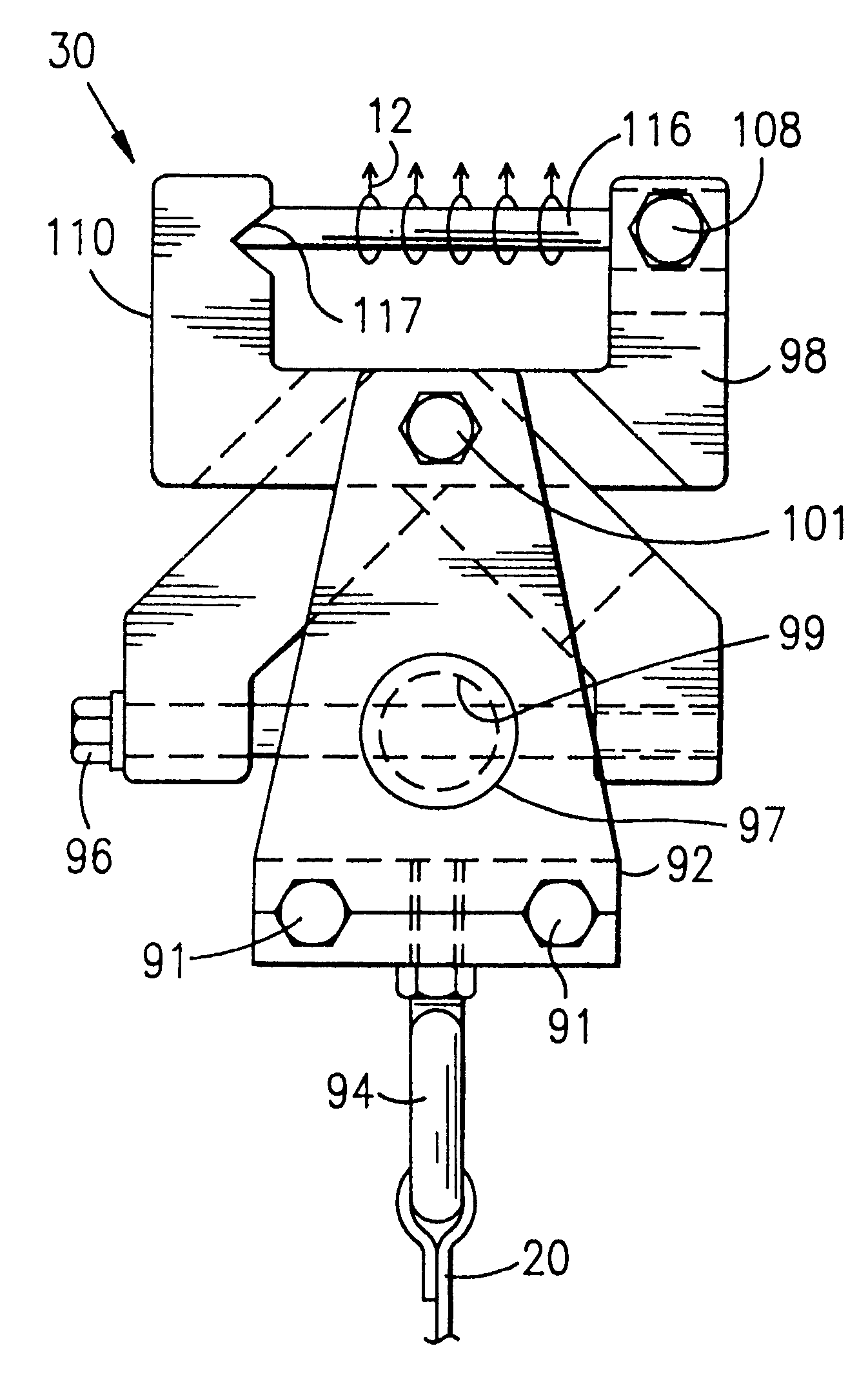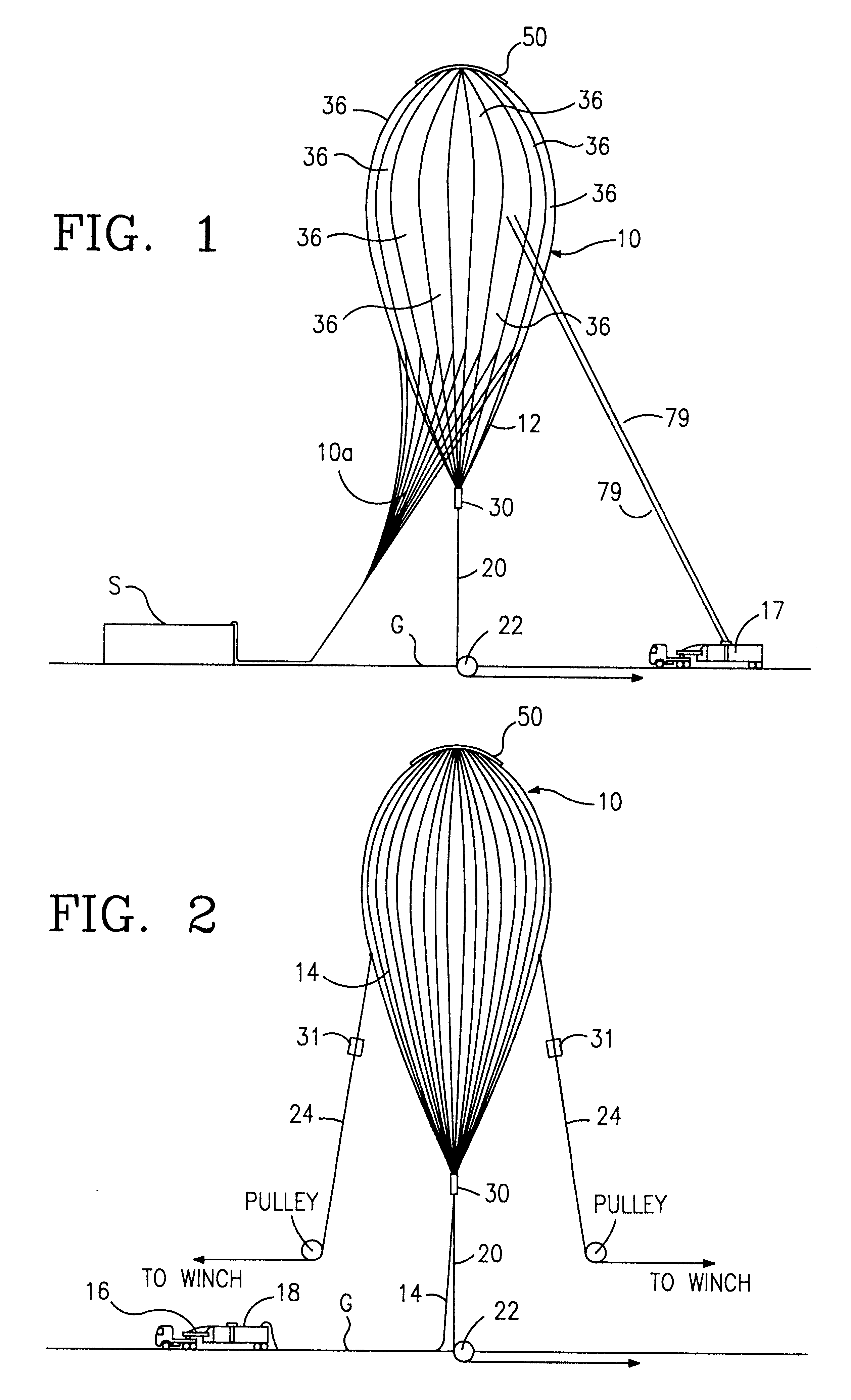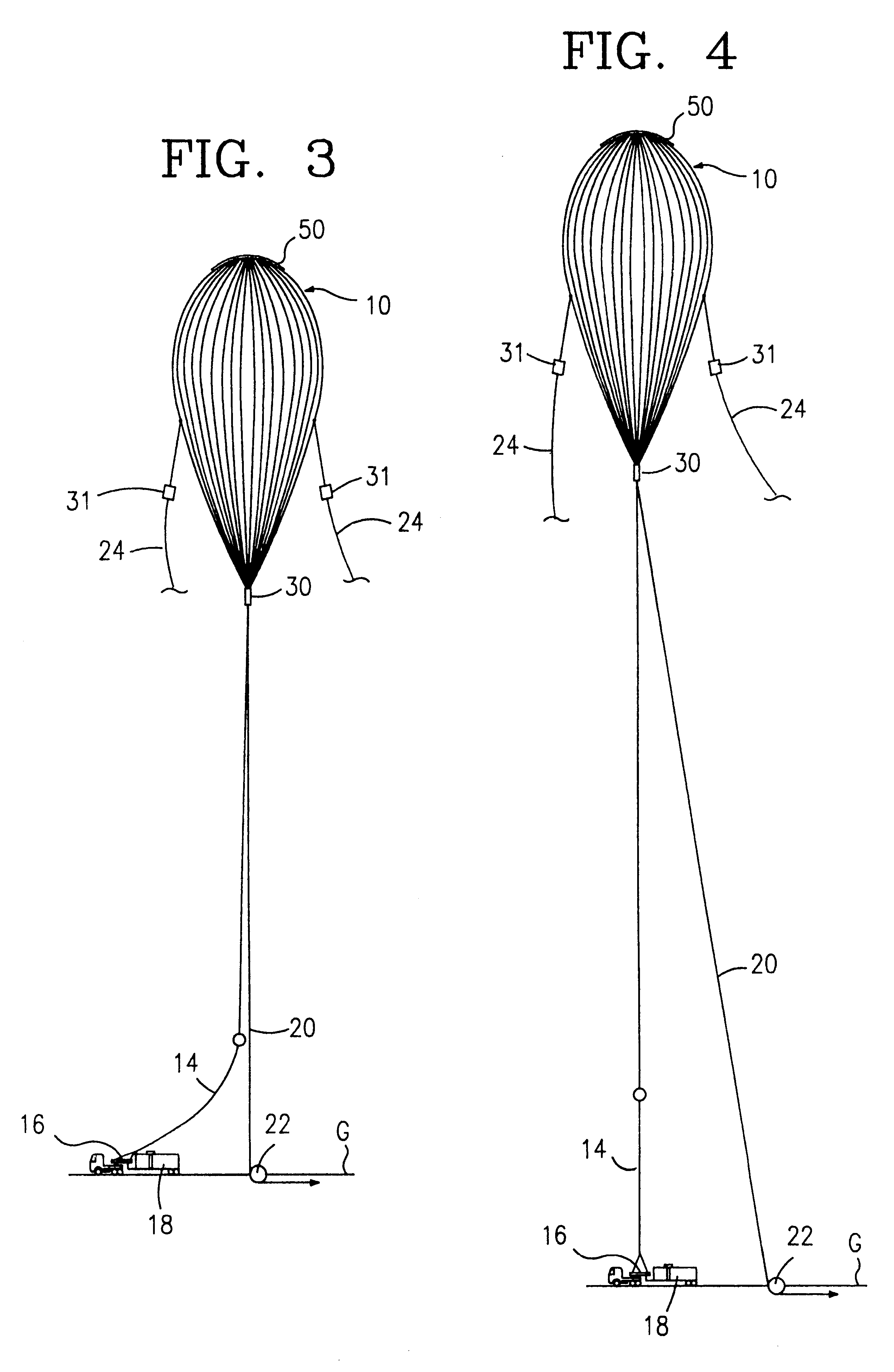Release fitting for balloons
a technology of balloons and release fittings, applied in the field of balloons, can solve the problems of destroying balloons made of polyethylene film, affecting the safety of balloons, and reducing the range safety cost, so as to reduce the impact of environmental impact, reduce or eliminate the effect of range safety costs
- Summary
- Abstract
- Description
- Claims
- Application Information
AI Technical Summary
Benefits of technology
Problems solved by technology
Method used
Image
Examples
Embodiment Construction
In certain preferred embodiments, the balloon material according to the present invention that includes light weight woven ripstop nylon fabric laminated together with a thin nylon film.
In certain preferred embodiments, the material has the following properties:
Regarding the various properties listed above, "Fill Direction" is the cross direction of the loom that makes the fabric; "Warp Direction" is the continuous fiber direction of the loom; "Grab Tensile Strength" is the tensile strength of the fabric as measured by a tensile pull test of the center portion of a wide sample; "Tongue Tear Strength" is the tear strength of the fabric as measured by a tensile pull test of a slit sample with each side of the sample pulled in opposite directions; "Peel Strength" is the strength of the adhesive system as measured by a 180 degree pull of a film layer from the fabric layer.
In one particular lamination process, a solvent or a water- based adhesive is applied to a film. The thickness of th...
PUM
 Login to View More
Login to View More Abstract
Description
Claims
Application Information
 Login to View More
Login to View More - R&D
- Intellectual Property
- Life Sciences
- Materials
- Tech Scout
- Unparalleled Data Quality
- Higher Quality Content
- 60% Fewer Hallucinations
Browse by: Latest US Patents, China's latest patents, Technical Efficacy Thesaurus, Application Domain, Technology Topic, Popular Technical Reports.
© 2025 PatSnap. All rights reserved.Legal|Privacy policy|Modern Slavery Act Transparency Statement|Sitemap|About US| Contact US: help@patsnap.com



